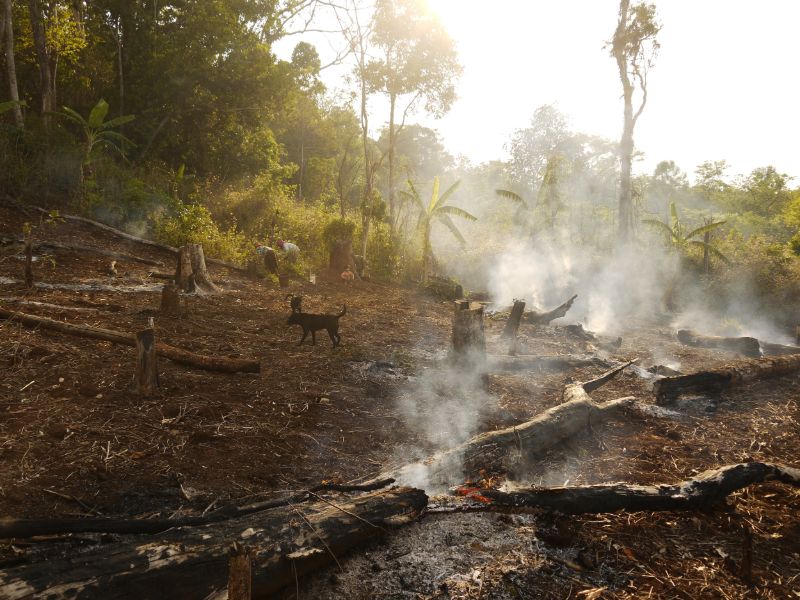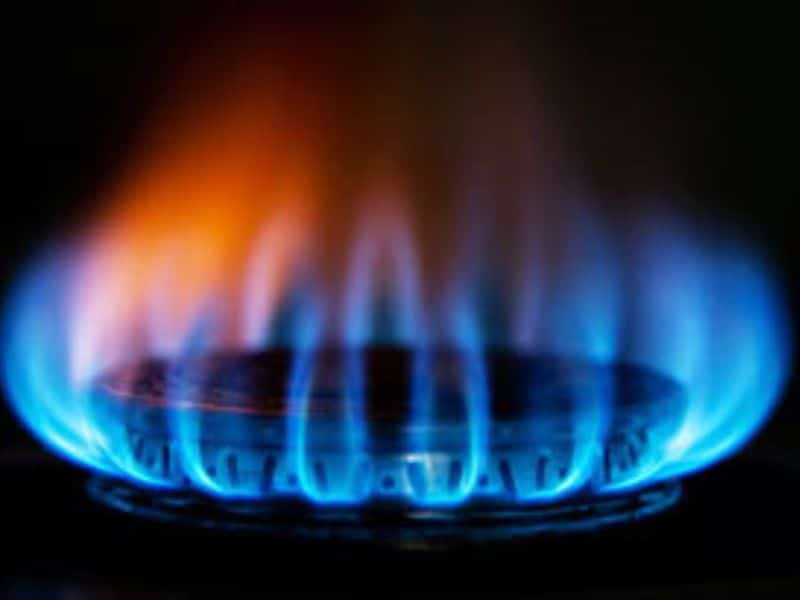Sustainable Charcoal
A key part of our philosophy here at Slate Hill Charcoal Co. is sustainability. To us making sustainable charcoal means producing our product with as little damage to the planet as possible, whether environmental or social, and maintaining or improving conditions for future generations.
The Problems
There are several problems with the majority of the charcoal market in the UK, the EU, and much, much further afield. Currently the UK uses around 100,000 tonnes of charcoal per year and of this, 90,000 tonnes is imported. Some is brought in from EU states such as Poland, Belgium or Spain, and some direct from countries where the manufacture of charcoal is unsustainable, destructive, polluting and often illegal. Unlike with imported timber and other wood products there is little to no regulation around the importation of charcoal, meaning it is quite possible for a company to import charcoal from any origin, known or unknown, and bag it as sustainably, ethically or selectively sourced without the customer knowing the true damage their weekend barbecue may be causing.



Environmental
The first thing that springs to mind when talking about the problems with some imported charcoal is the environmental degradation and destruction that its sourcing and production may have caused.
01. Deforestation
Images of tropical rainforest being cleared is often associated with the movement towards extensive grazing of cattle in South America and Central Africa, and this is often the end purpose of this land. The timber that is cleared was previously often pushed up and burnt, perhaps with selected rare or large trees being utilised for other means, however, the idea that more income can be generated by covering these burns with earth and inefficiently producing charcoal has taken hold. This often funds the clearance, eliminating another barrier to those who see this as the path to profit. The loss of virgin tropical forest habitats and the biodiversity that goes with them has been at the forefront of campaigns to protect endangered species, boost greenhouse gas absorption and make our planet a more sustainable place for generations to come.
02. Soil & Air Quality
Any activity which involves the pyrolysis of wood will produce gases and fluids that are damaging to the planet and human health. Unless captured or burnt off these will infiltrate the soil used in rudimentary earth burns, and pollute the air.
03. Efficiency of Production
The use of rudimentary production methods such as earth burns is a comparatively inefficient process. Of the wood that goes into such a burn, only around one tenth is converted to usable or saleable charcoal.
04. Importation / Transportation
Through globalisation the act of transporting products and commodities around the world has become commonplace, but its effects on the planet must be mentioned. The transportation sector accounts for around 29% of all greenhouse gas emissions worldwide, and shipping bulky charcoal to Europe contributes to this.
Social
Although not as visible, the social problems brought about by the importation of unsustainable charcoal can be just as destructive. In certain countries where charcoal exports have become big business, such as Nigeria, the rights of workers and their families are overlooked. Evidence of child labour, poor conditions, low pay and little to no healthcare has been exposed in the industry, as well as widespread corruption.
Chain of Custody
Further problems are identified when you look in the imports coming into the UK from Europe. What you may assume is a sustainable source of charcoal is often lacking transparency and a full certificate of traceability. Some of the largest importing countries in Europe, such as Poland, are also some of the largest exporting countries, muddying the waters over the sourcing of some of the UK’s biggest names in charcoal sales. In the last few years it has also been seen that EU countries that produce a lot of their own charcoal are also importing and exporting large amounts. It has been suggested that although their exports are of a sustainable source, much of the unsustainable imports are being marketed in areas that do not respect the traceability of the product.
The Solutions
Sourcing
Probably the easiest way to ensure the product you are buying is sustainable is to know where it comes from. Full traceability, from growing tree to charcoal on your barbecue and knowledge of all of the movements and processes in-between is the only way to avoid purchasing something that could be fuelling some of the problems highlighted above. At Slate Hill Charcoal Co. we are happy to show you every piece of the charcoal production process that happens here, whether through social media, our website or even a tour if you’re in the area!
The species of wood can be an insight into the origin of the product. In the UK, charcoal is traditionally made from deciduous hardwoods such as Ash, Beech and Alder for good reason; because they grow right here, on our doorstep. Some of these species don’t even have to be felled, but are harvested on a coppice rotation, allowing the tree to regenerate and providing a broad range of different habitats within a single area. If the tree has been felled then it is usually a requirement that there is a management plan in place, often requiring the replanting of similar native species.
Woodland management is key when it comes to sustainability, as Oliver Rackham notes in Woodlands (2006, pg 132) “The thesis that woods were destroyed by heavy industries cannot be sustained, on the contrary where ever there remained a big concentration of woodland, there is an industrial or urban use to account for its preservation. It was the ‘unexploited’ woods that disappeared from the map…Woodmanship is an ecological factor in its own right.”.
Efficient Use
This bit comes down to you! With the amount of work that goes into producing our sustainable charcoal, primarily by the tree and nature itself, we ask that you use it efficiently. British hardwood charcoal burns hot and clean, meaning you can cook on it sooner than imported counterparts. Modern barbecues play a part too, with ceramics ensuring that the heat is sustained for as long as you need it, and controls so that you can manage your fire as you want.
Efficient Production
At Slate Hill Charcoal Co. we produce our sustainable charcoal using the retort method. In effect this cooks the wood until it starts to give off its volatile gases, which are the fed back to fuel the heating process until the optimal temperatures are reached. This is currently one of the most efficient methods available, with conversion ratios of up to 3:1. Compare this to earth kilns at 10:1, or traditional ring kilns at between 8:1 and 6:1. The wood we use to power the initial heating part of the burn is waste wood often destined for landfill or to be burnt for no use. Excess heat generated by the retort can be captured and piped for other uses such as drying future charcoal wood-stock. Learn more about how we make our charcoal.
Charcoal can be renewable and sustainable, just make sure you know what product you are buying!